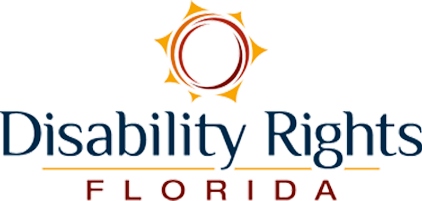Blog | Tag: Accessibility
Disability is Not a Bad Word: Why ‘Unique Abilities’ Isn’t as Nice as it Sounds
Friday, December 08, 2023
Members of the disability community experience very real barriers, oppression, and discrimination daily. That fact cannot and should not be swept under the rug of comforting euphemisms.
Crip the Holidays: Making Your Holiday Gathering Accessible
Friday, December 16, 2022
As you prepare for your 2022 holidays, we invite you to consider how you can make your celebrations more accessible for all of your disabled, chronically ill, neurodivergent, survivor, and healing friends. We hope these five examples will be helpful to you as you prepare for a very merry holiday season.
15 Best Online Accessibility Practices
Thursday, November 10, 2022
We've created a list of our 15 best accessibility practices to make it easier for you to learn and implement accessibility online.
Disability Futures: The Power and Presence of Indigenous Disabled Stories
Saturday, November 05, 2022
Join two-spirit, disabled, Native artists in a conversation exploring the challenges faced by Native artists and communities with a lack of digital access.
Our 2022 Disability Voting Work
Saturday, September 24, 2022
Disability Rights Florida staff have been very busy this 2022 Primary Election season! We want to share what we've been up to, some resources that you may find useful, and information all about your power as a voter with a disability.
Making Pride More Accessible for Disabled 2LGBTQIA+ Folks
Tuesday, June 21, 2022
Happy Pride Month! What a wonderful month to celebrate with you. Before we begin the blog, we want to name that whether you are out or not, figuring out your identity or not, we see you, we appreciate you, and care for you. Your experiences and identities are valid, and we hope to always offer you a safe space at our organization and events to be your true and authentic self.
Usability for some…or for all?
Wednesday, November 10, 2021
November 11th is World Usability Day, an annual event intended to highlight the importance of technology as a way to help make our lives easier. Devices like cellphones, laptops, tablets, and public access kiosks — and the websites, applications and interfaces that run on these devices — have the potential to remove barriers, open up opportunities, and advance inclusion for people with disabilities.
National Disability Voter Registration Week is September 13 – 20
Friday, September 10, 2021
Every year since 2016 the American Association of People with Disabilities has hosted National Disability Voter Registration Week in coordination with its REV UP campaign state chapters, including Florida’s REV UP Chapter, Access the Vote Florida. An estimated 38 million people with disabilities were eligible to vote nationwide during the 2020 elections making the disability community the largest minority voting bloc in the United States. Despite these large numbers, issues that affect the disability community are not usually discussed during elections or are discussed with no mention of the implications for people with disabilities.
The ADA 31 Years Later: Are We There Yet?
Wednesday, July 21, 2021
In 1990, President Bush pulled the equality and inclusion bus up to the White House and invited People with Disabilities to climb onboard. He compared the act of signing the Americans with Disabilities Act (ADA) to the destruction of the Berlin Wall, a powerful symbol of Communist oppression that many of us feared, fought, and cheered when it finally fell. It was such a pivotal moment for that generation; how could we not cheer and applaud the fall of another wall of oppression a year later?
An IDEA about a Firm Foundation for your Future
Friday, November 20, 2020
When President Ford signed the Education for All Handicapped Children Act (Public Law 94-142), later known as the Individuals with Disabilities Education Act (IDEA), in 1975, all children were given access to the public school system to receive a free and appropriate education in the least restrictive environment. From that time forward, students with disabilities had the right to receive an education with their non-disabled peers with all the same resources, teachers, and classrooms.
